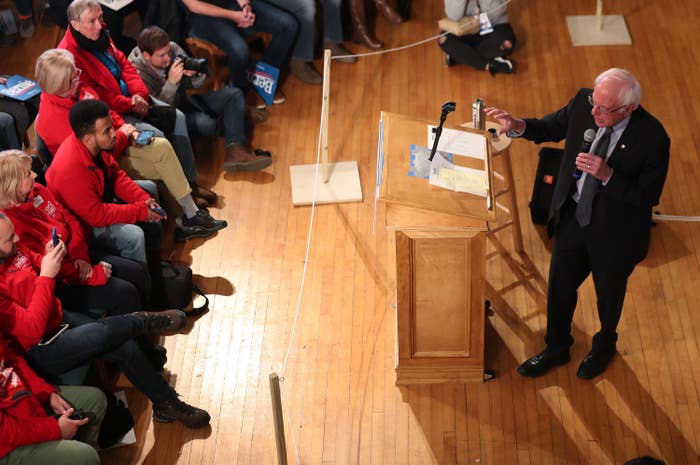
Bernie Sanders thanked Iowa for a resounding victory on Monday at a press conference in New Hampshire.
The Vermont senator, whose campaign has essentially claimed victory this week, said on Thursday that the raw votes in Iowa meant he's won the state.
Asked why he was claiming victory when Pete Buttigieg has also claimed victory, Sanders said, "Because I got 6,000 more votes."
Currently, with 97% of results reported, Buttigieg holds a very narrow lead in what's called the "state delegate equivalents," which is a measure ultimately used to select delegates for this summer's national convention.
For the first time this year, the IDP released three sets of results. When you attend a Democratic caucus in Iowa, you select your candidate on the first vote. A caucus chair counts up everyone in the room. This is called the first alignment.
After that, if your candidate doesn’t meet 15% of the vote, you can pick another candidate, go home, or form an alliance with enough people who no longer have a viable candidate to hit 15%. Then the caucus chair counts again. That’s the final alignment.
The final alignment is used to determine delegates for the state convention and, ultimately, delegates for the national convention this summer. This is called the delegate equivalent.
Traditionally, the party only reports the delegate number, and that's how the party usually chooses a winner. As of Thursday, Sanders leads in the first alignment and the second alignment. Buttigieg leads in the delegate equivalent.
"This difference," Sanders added at his press conference, "no matter who inches ahead in the end, is meaningless, because we are both likely to receive the same number of national delegates to the Democratic National Convention in Milwaukee."
It's still not clear when the Iowa Democratic Party will finish reporting results, and whether they'll do — essentially — a recount. The Democratic National Committee chair called for a "recanvass," or a hand audit of local results to ensure the correct count at the end, after some people found apparent errors in the reporting process on top of the long delay in producing results.
Caucuses, which require math done by volunteers, are a notoriously complex way to select a candidate.
